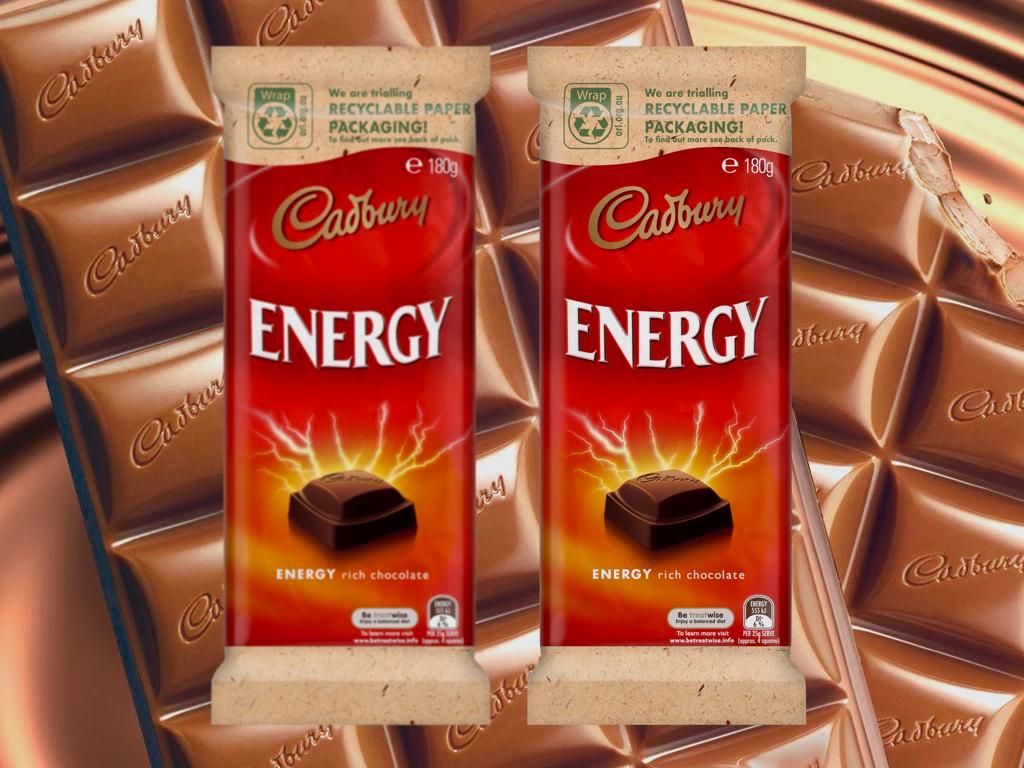The regional branch of the multinational corporation Mondelez Australia has begun a trial of their first ever Cadbury chocolate bar packaged in 100% recyclable paper. Unlike many existing paper-based food wrappers, the material used in this packaging does not contain any laminates, foils or plastics, and is fully recyclable.
Mondelez Australia, the purveyors of the famous chocolate brand Cadbury, has just trialled their first-ever 100% recyclable paper packaging on Cadbury’s chocolate bars produced for overseas delivery. According to the firm, the new packaging is made out of a fully-sealed sustainably-sourced paper material that does not contain any laminates, foils or plastics, but can still protect and keep food fresh.
Commenting on the initiative, marketing director at Cadbury Paul Chateld said: “This is a world-first for us, and the material is at the leading edge of packaging innovation. We’re committed to finding innovative solutions to the sustainability challenges facing the planet.”
Read: Is your favourite chocolate bar fuelling deforestation in Indonesia?
The trial, which is currently implemented in Australia and New Zealand, aims to test the durability and effectiveness of the new sustainable and recyclable paper packaging for items in transit. While this is for now only taking place in the two countries, Cadbury is hoping to expand the initiative to more locations and products around the world after receiving consumer feedback.
Mondelez’s more sustainable packaging solution is a win for the planet because it does not rely on plastic or foil films to act as a barrier against food, which is common in the packaging of many confectionary, snacks and processed foods on the market. While most companies prefer this kind of multi-layered packaging because it is light, reduces shipping volume and is graphics friendly, it makes it difficult properly recycled.
Packaging as a whole leaves behind a devastating impact on our planet, adding to our overflowing landfills and fuelling the global plastic waste crisis.
According to the Ellen McArthur Foundation, our obsession with convenience that is driving the use of plastic packaging is going to lead to plastic waste outweighing fish in the sea by 2050. The depths of our plastic pollution crisis extends to our own health, with microplastics being found in the blood samples of children and ingested into our bodies through seafood consumption.
Read: Coca-Cola says consumers still want plastic bottles – is it true?
The move to ditch plastic is a part of the confectionery and snacks giant’s aim to reduce the amount of plastic waste it is responsible for. While Coca-Cola was shunned as the top polluting brand worldwide for the second year in a row in Break Free From Plastic’s global audit, Mondelez was also highlighted as among one of the big culprits for ocean plastic waste.
Since receiving this criticism, the snack purveyor has made several other sustainability commitments, including pledging to use 100% recyclable packaging by 2025 and source 100% sustainable cocoa for its chocolate snack brands.
Other major brands have also changed tack towards using recyclable paper packaging solutions as awareness about the environment continues to grow. In September last year, Nestlé Japan announced that they will launch recyclable paper packaging for KitKats, which comes with instructions to fold origami cranes.
Lead image courtesy of Mondelez / Cadbury / Green Queen Media.



